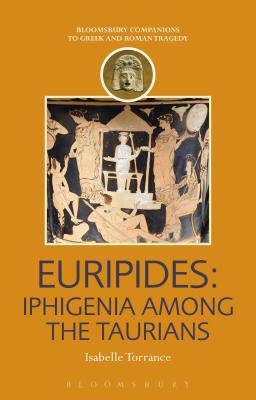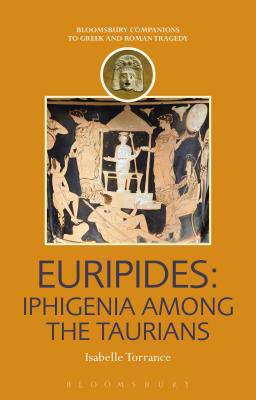
- Afhalen na 1 uur in een winkel met voorraad
- Gratis thuislevering in België vanaf € 30
- Ruim aanbod met 7 miljoen producten
- Afhalen na 1 uur in een winkel met voorraad
- Gratis thuislevering in België vanaf € 30
- Ruim aanbod met 7 miljoen producten
Zoeken
Omschrijving
In this new student introduction to a Greek tragedy, Isabelle Torrance looks at what makes Iphigenia among the Taurians a successful tragedy in ancient Greek terms, and how dramatic excitement is achieved through the exotic setting, the cast of characters, and the chorus. Assuming no knowledge of Greek, and with students in mind, the central themes of ethnicity and gender relations are examined to show how Euripides manipulates established stereotypes.
The play was one of Aristotle's favourites and his enthusiasm derived from the fact that, in spite of its ostensibly happy ending, the play presents the audience with an exquisitely constructed reversal of events: when Iphigenia recognizes that she has been about to sacrifice her long-lost brother, kin-murder is avoided and the plot turns into an escape drama. Other significant concerns of the play surround ritual and the gods, and these are discussed to highlight how the drama asks probing theological questions. Finally, the vast reception history of the play in a variety of genres, such as ancient comedy, Roman philosophy, European opera, and 20th century theatre, is sketched out from antiquity to the present day.
The play was one of Aristotle's favourites and his enthusiasm derived from the fact that, in spite of its ostensibly happy ending, the play presents the audience with an exquisitely constructed reversal of events: when Iphigenia recognizes that she has been about to sacrifice her long-lost brother, kin-murder is avoided and the plot turns into an escape drama. Other significant concerns of the play surround ritual and the gods, and these are discussed to highlight how the drama asks probing theological questions. Finally, the vast reception history of the play in a variety of genres, such as ancient comedy, Roman philosophy, European opera, and 20th century theatre, is sketched out from antiquity to the present day.
Specificaties
Betrokkenen
- Auteur(s):
- Uitgeverij:
Inhoud
- Aantal bladzijden:
- 176
- Taal:
- Engels
- Reeks:
Eigenschappen
- Productcode (EAN):
- 9781474234412
- Verschijningsdatum:
- 7/02/2019
- Uitvoering:
- Hardcover
- Formaat:
- Genaaid
- Afmetingen:
- 137 mm x 218 mm
- Gewicht:
- 317 g

Alleen bij Standaard Boekhandel
+ 390 punten op je klantenkaart van Standaard Boekhandel
Beoordelingen
We publiceren alleen reviews die voldoen aan de voorwaarden voor reviews. Bekijk onze voorwaarden voor reviews.







